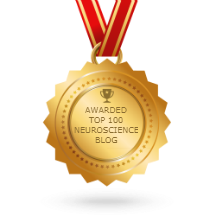-
3
Jan
31 July – 2 August, 2008, Brighton, UK
Eighth International Conference on Epigenetic Robotics:
Modeling Cognitive Development in Robotic Systems
http://www.epigenetic-robotics.org
Email: epirob08@epigenetic-robotics.org
***2008 Conference Theme***
Evolution and Development: Related Processes of Change
Location:
University of Sussex,
Brighton, UK
Important Dates:
—————-
1 April 2008: Deadline for submission of papers & posters
31 May 2008: Notification of acceptance of papers & posters
30 June 2008: Deadline for camera ready papers
31 July – 2 August 2008: EpiRob08 @ Brighton
Keynote Speakers: TBA
—————–
Conference Theme:
——————
In the past 7 years, the Epigenetic Robotics annual conference has established itself as a unique place where original interdisciplinary research from developmental sciences, neuroscience, biology, cognitive robotics, and artificial intelligence is being presented.
Psychological theory and empirical evidence is being used to inform epigenetic robotic models, and these models can be used as theoretical tools to make experimental predictions in developmental psychology.
As in previous years, we encourage submissions from researchers whose work broadly intersects the fields (and subdisciplines) of developmental science, robotics, and neuroscience. As a special feature, this year we are also highlighting a specific organizational theme: evolution and development as related processes of change.
The particular focus of this theme is on the dynamic interplay between ontogeny and phylogeny. In other words, how do new abilities and skills that emerge during development influence the path of evolution, and how do subsequent evolutionary changes help to create new developmental trajectories? This is a question that fits well within the mission of epigenetic robotics, as it spans not only a wide range of research areas and academic disciplines (e.g., biology,
psychology, AI and machine learning, linguistics, anthropology, etc.) but also a broad spectrum of spatial and temporal scales (e.g., neurons, brains, social communities, cultures, etc.).
We are especially interested in submissions that will enhance the emerging dialog between evolutionary and developmental perspectives. Relevant topics include, but are not limited to:
- Artificial embryology
- Morphogenesis, differentiation, and regulation
- Behavioral inheritance and social learning
- The evolution of language acquisition
- Phylogenetic constraints on perceptual processing (e.g., face perception)
- Neuroplasticity and the evolution of cognition
- Evolutionary influences on mother-infant bonding
- Modularity of mind (evolutionary constraints on neural processing)
- Tool-use and problem-solving in humans, non-human primates, and machines
Modes of Submission:
——————–
(1) Regular Submission (8-page max). After review, regular submissions will either be accepted or rejected (no revision as short papers or posters). Regular submissions will be allocated 8 pages in the Proceedings.
(2) Abstract Submission (1-page max). After review, selected authors will be invited to present a poster. Abstract submissions will be allocated 2 pages in the Proceedings.
Submission instructions will be available from the EpiRob website:
http://www.epigenetic-robotics.org. Email submissions and/or questions regarding the submission process to epirob08-PC@epigenetic-robotics.org.
Related Events:
—————
Note that “Artificial Life XI” (http://www.alifexi.org/) will be hosted in Winchester, UK (5-8 August 2008), and that we encourage participants to attend both meetings.
Organizing Committee:
———————
Christian Balkenius (Lund University, Sweden)
Luc Berthouze (University of Sussex, UK)
Lola Cañamero (University of Hertfordshire, UK)
Matthew Schlesinger (Southern Illinois University, USA)
- Published by Dimitrios A. Adamos in: External announcements
- RSS feed subscription!

 Neurobot via RSS
Neurobot via RSS
